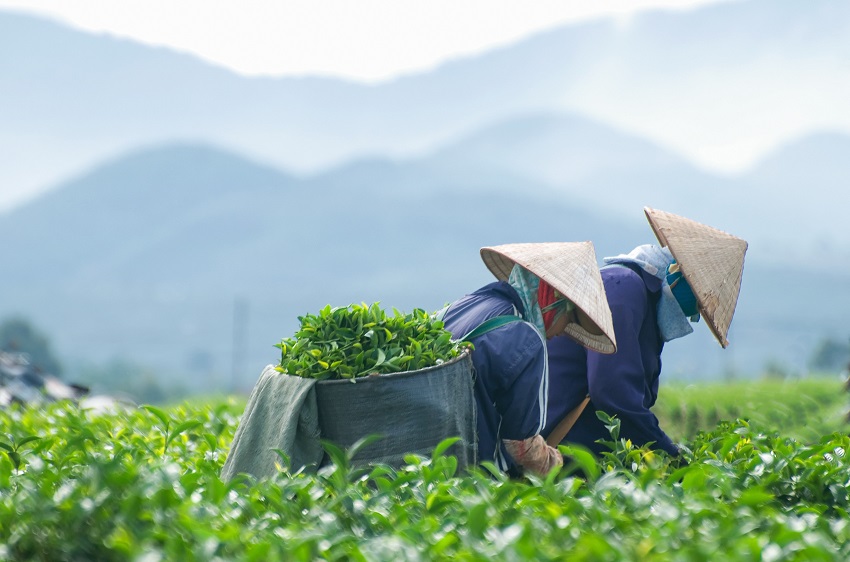
A standard cup of tea requires one-eighth as much water as a cup of coffee, but tea is no eco-beverage. In fact, the carbon footprints of tea and coffee production are almost identical. But producing tea contributes less to its footprint than how you drink it. Brewing a truly sustainable cuppa might be impossible, but a little education about your tea choices makes it easier to shop your values. Here’s what you need to know about tea.
Farm
The UN FAO launched a project in Kenya last year to support the production of carbon-neutral tea. Another initiative, Tea2030 crosses all sectors of tea production. But for now, most tea is grown on chemical-intensive farms that contribute to deforestation, erosion, and pesticide contamination. Monoculture farms damage soil health and make plants more susceptible to disease, leading to more intensive use of chemical pesticides and fertilizer. Half of the 62 teas tested by the FDA in a 2015 study contained pesticide residues.
Using biological controls instead of fumigants against soil nematodes; site-specific fertilization plans or organic farming; and the introduction of shade trees to plantations are all methods for reducing the impact of tea cultivation.
People
A labor-intensive crop harvested by hand, tea is grown all around the world with China, India, Kenya, and Sri Lanka as the largest producers. China produces half the world’s tea on 15 million small farms where there is little awareness of the dangers of agrochemicals. Two-thirds of Kenyan tea farmers are also smallholders with few employees (some of whom may be children). By contrast, three-quarters of Indian tea (particularly Assam) is still produced on near-feudal plantations with a history of human rights abuses that particularly impact women. But everywhere, low wages, pesticide exposure, and brutal working conditions are rampant.
The vast majority of tea is still purchased in bulk by multinational corporations. Only Sri Lanka has developed much local processing, but this has not led to direct trade options or improved conditions for workers.
With the rise of tea consumption and a higher demand for sustainable products, the tea industry is moving in a greener direction.
Tea is becoming a sustainable business in terms of the environment, economy and society.
In 2013, Forum for the Future created a campaign called Tea 2030. The project involves companies and individuals across the tea industry, from pickers and packers to producers and purchasers, coming together to solve tea’s sustainability issues by the year 2030.
Fair trade — trade in which fair prices are paid to producers — is being implemented around the world as well.
Companies partner with independent farmers and, with the fair-trade certification, ensure that workers receive just payment in fair work conditions and use environmentally sound farming methods.
Sustainable Tea Brands
Honest Tea
Arbor Teas
Numi
Due to their waste-free processing, Numi saves thousands of trees every year.
Due to the severe lack of choice of tea bags here on Menorca, it´s either PG Tips or Typhoo, the spanish tea is not too good! (three bags to get a half decent cup!) and they state that they are environmentally friendly but I am not so sure!
It really is difficult to buy anything these days without wondering how it got to be on the shelf and what damage has been caused along the way to people, animals the environment and of course the sea.
Saying that, I am doing the very best I can to make a small difference along with many other like-minded people and I do not intend to give up, at all, ever!!
The blog song for today is: "Astronomy domine" by Pink Floyd
TTFN



No comments:
Post a Comment